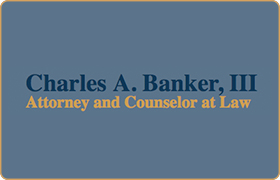Kemah Misdemeanor Lawyer, Texas
Sponsored Law Firm
-
 x
x

Click For More Info:
-
Charles Banker, Attorney at Law
405 Main St. Ste. 910 Houston, TX 77002» view mapCriminal 30 Years Experience
You need an attorney with criminal defense knowledge who will vigorously protect your rights.
800-969-9880
Mark W. Bennett
Felony, Misdemeanor, White Collar Crime, Federal Appellate Practice, Domestic Violence & Neglect
Houston, TX Criminal & Federal Defense Attorney
Since graduating from law school in 1995, he has dedicated his career to criminal defense, never stepping foot in the realm of prosecution. Mark posse... (more)
Marshall Douglas Murphy
DUI-DWI, Criminal, Misdemeanor, Felony, White Collar Crime
Doug Murphy: Renowned Board Certified Criminal Law & DWI Specialist Serving Houston, Texas
Doug Murphy stands as a prominent figure in the legal realm of Houston, Texas, with a focus on Criminal Law and DWI Defense. His career, which began i... (more)
Tamara Renee Gaines
Landlord-Tenant, Divorce & Family Law, Misdemeanor, Bankruptcy
Status: In Good Standing Licensed: 24 Years
Thomas Nave Kiehnhoff
Traffic, Lawsuit & Dispute, Immigration, Employment, Misdemeanor
Status: In Good Standing
Jonathan Julio Vela
Criminal, Personal Injury, Misdemeanor
Status: In Good Standing Licensed: 4 Years
Mary E. Conn (Mary)
Misdemeanor, DUI-DWI, Criminal, Criminal
Status: In Good Standing Licensed: 40 Years
Catherine Verlander Evans
Felony, White Collar Crime, Misdemeanor, Criminal
Status: In Good Standing Licensed: 24 Years
Kenneth David Hughes
Military, Litigation, Employee Rights, Misdemeanor
Status: In Good Standing Licensed: 37 Years
David L Singer
White Collar Crime, Misdemeanor, Felony, DUI-DWI
Status: In Good Standing Licensed: 41 Years
FREE CONSULTATION
CONTACT Charles Banker Houston, TX
Charles Banker Houston, TX AboutCharles Banker, Attorney at Law
AboutCharles Banker, Attorney at Law Practice AreasExpertise
Practice AreasExpertise



